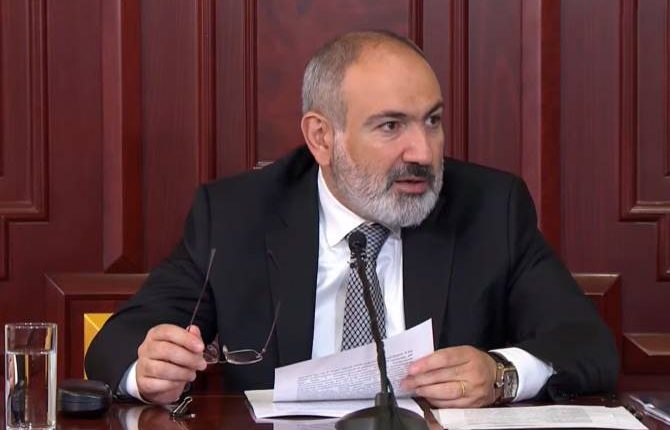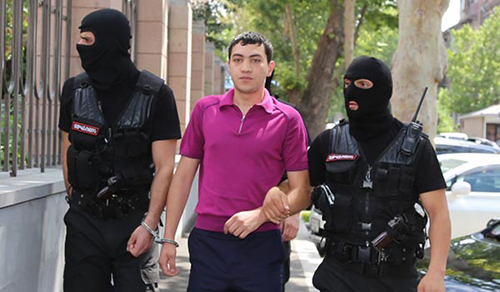By K. KHODANIAN
Last week, the special parliamentary commission investigating the circumstances of the 44-day war, held an open hearing to listen to Prime Minister Nikol Pashinyan’s testimony. During the hearing, which was boycotted by the opposition, Pashinyan, in a written statement, touched upon the various stages of the negotiations regarding the settlement of the Karabakh conflict over the past 25 years leading up to the 44-day war, its course, and the tripartite agreement signed on November 9, 2020.
One of the significant areas of Pashinyan’s speech focused on the ceasefire negotiations and Azerbaijan’s preconditions. He acknowledged that at the time, these preconditions, if accepted, would have been much more unfavorable for Armenia. There were clauses concerning the corridor passing through Meghri and the return of enclaves in the Tavush region. These conditions were presented during the ceasefire negotiations held on October 19, which the opposition often utilizes to accuse Pashinyan of refusing to halt the war sooner when the city of Shushi was still under Armenian control. In response to these accusations, Pashinyan clarified that the terms of the ceasefire at that time, included the return of the former Azeri residents of Shushi to their homes, who constituted 95 percent of the population. Additionally, it entailed the construction of a new road connecting the city to Azerbaijan, which would have allowed the Azeri army to enter Shushi, effectively taking control of the city.
Another important revelation made by the Prime Minister was that the military leadership provided him with incorrect information throughout the war, even falsely reporting that a portion of Shushi was still under the control of the Artsakh Defense Army.
In his speech, Pashinyan rightfully accused Robert Kocharyan of sacrificing the only internationally recognized status of Nagorno-Karabakh to strengthen his own power. He highlighted how the representatives of Karabakh were excluded from the negotiation table, ultimately turning the issue into a land dispute between Armenia and Azerbaijan in the eyes of the international community, with Armenia being the occupier.
Even with the Prime Minister’s revelation, it is unlikely that the opposition will reconsider its rhetoric and stop spreading falsehoods. Instead, they will likely continue to accuse Pashinyan of treason. However, the real betrayal lies with those who held power for 20 years and neglected the importance of keeping pace with Azerbaijan’s arms purchases and its growing capabilities. During that time, Armenian governments ignored the need to modernize the Armenian Armed Forces; instead, they introduced corruption into the ranks of the army’s top brass.
“The government of Armenia spent approximately 608 billion drams ($1.2 billion USD) on the acquisition of weapons and military equipment during the period of 2018-2020, which amounts to 2 years and 4 months. In comparison, the previous governments of Armenia spent 354 billion drams for the same purpose from January 1, 2008, to May 2018, which is a total of 10 years and 4 months. In other words, in just 2 years, we have achieved almost twice as much as we had in 10 years,” stated the Prime Minister. These figures have been publicly reported and documented by relevant international organizations, and neither Kocharyan nor Serzh Sargsyan, nor their representatives, have ever denied or contradicted them.
The hearings involving the Prime Minister will continue next week, during which Pashinyan will answer questions from the members of the investigative commission. It would be advantageous for opposition members of the commission to attend the session and raise their issues and concerns, allowing the public to assess each one’s share of responsibility and determine the truth behind Armenia’s defeat in the 44-day war.
“MASSIS”









